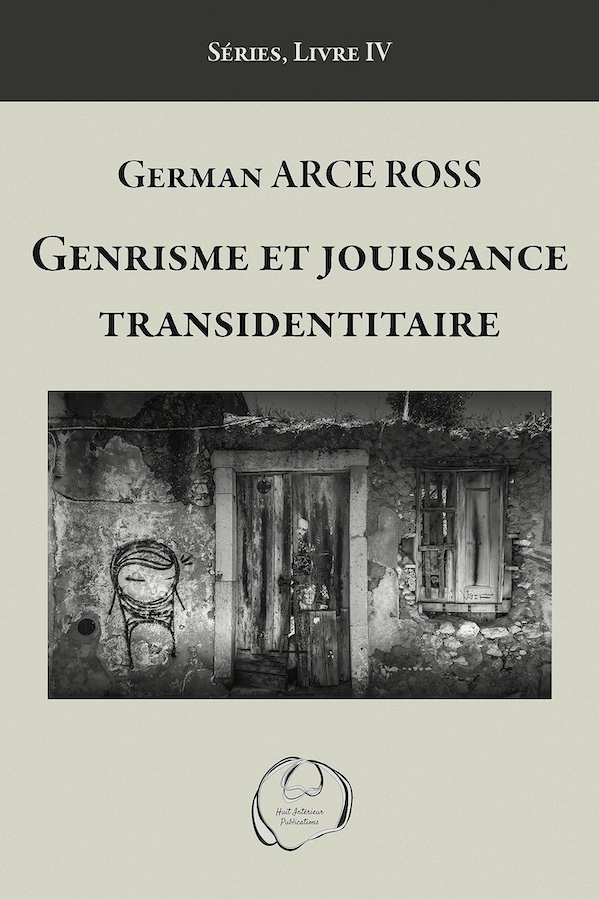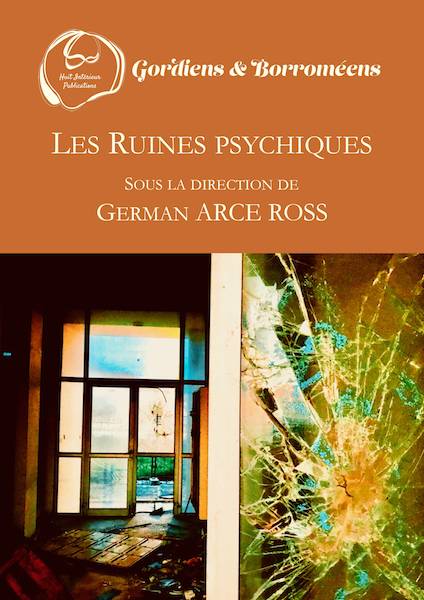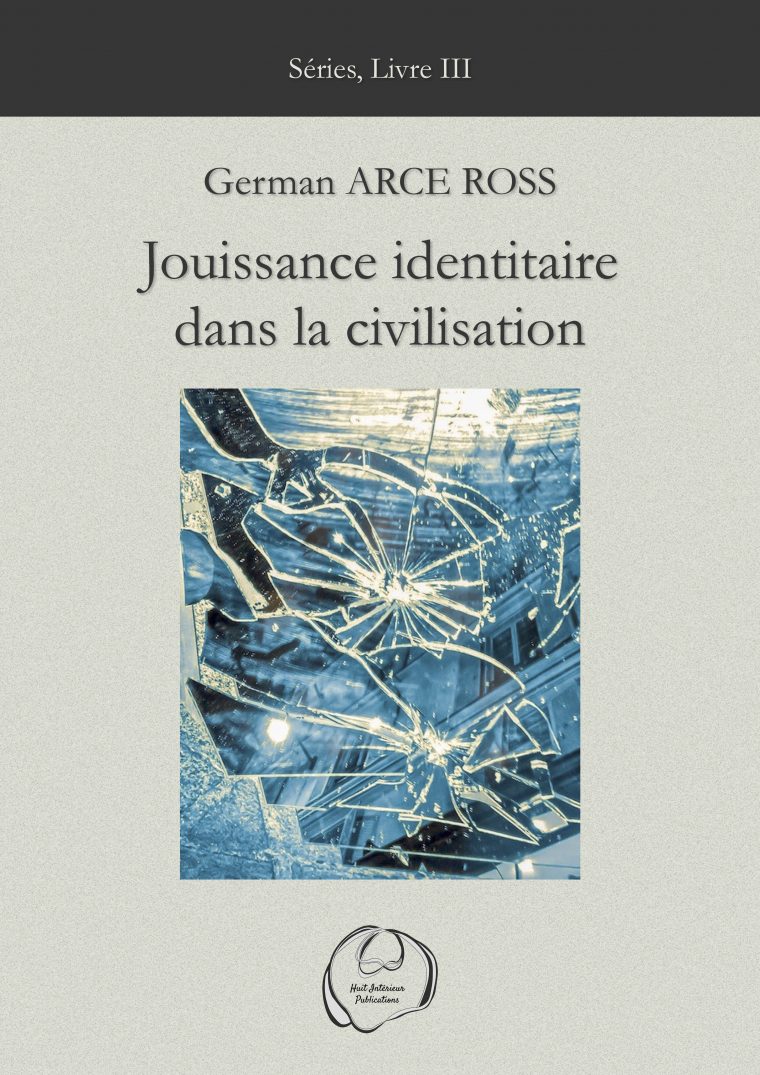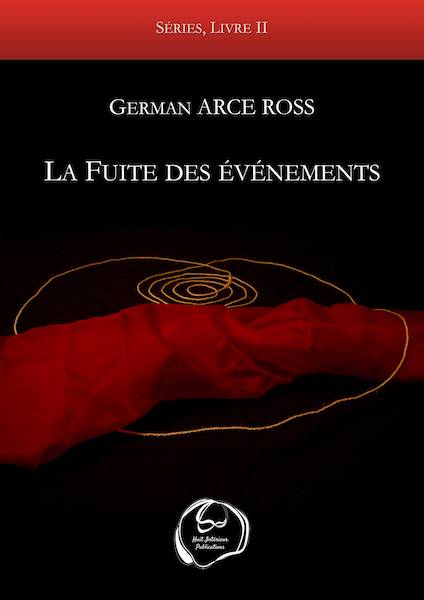German ARCE ROSS. Paris, July 22, 2018
Bibliographic reference (any partial reproduction, or quotation, must be accompanied by the following mentions) : ARCE ROSS, German, « Anti-psychiatry & anti-psychoanalysis », Nouvelle psychopathologie et psychanalyse. PsychanalyseVideoBlog.com, Paris, 2018.
Lacanian psychoanalysis is not an anti-psychiatry. And, in its way, anti-psychiatry is not only a theory against psychiatry but is basically an anti-psychoanalysis theory too.
Gilles Deleuze and Félix Guattari wrote an anti-Oedipus and created something delusional like their utterly inefficient « schizoanalysis ». Ronald Laing and David Cooper were ideologically anti-family and sometimes were out of reality like some racists Cooper’s points of view (The Death of the Family). Michel Foucault tried to criticize psychiatry without understanding psychoanalysis, but with the ideological purpose to justify homosexuality, and legalize pedophilia and other “gender” identities. Thomas Szasz close himself into the walls of an illness myth without finding a new way to symbolize madness. Mixing Freud and Marx, after Herbert Marcuse, Robert Castel tried to kill the power of the Freudian field with an sociological criticism of psychiatry and of lacanian practice. Franco Basaglia opened too much the necessary barriers between psychosis and social bond as if solution of psychotic states were a Marxist issue.
All these anti-psychiatric authors, most of them almost insane, having suicidal tendencies, or suffering addictives or psychotic troubles, or even with many sexual perversions, developed a social and ideologycal myth to misunderstand madness.
We don’t think one can make a good critique with ad hominem arguments. But in the case of majors figures of the anti-psychiatric mouvement, their own personal traits or interests as well as their own life experiences have been highlighted, by themselves, as essential aspects of their arguments. Probably, they acted in this way instead of a personal work of psychoanalysis that they lacked. For these reasons, we can not avoid mentioning some of the personal signs and serious personality cracks of these authors in this short introductory note.
In addition to that, they have put forward many ideological and political arguments in an area that should rather be stripped. In draining ideological mirages, anti-psychiatry has presented itself more as an extremely politic movement against the entire social system, or even against Western civilization, than as a serious and balanced critique of clinical practice in psychiatry. We are therefore also obliged to refer to it.
The Delusional statements of David Cooper
David Cooper had developed not really confusing but delirious or pre-delusional statements about the « transsexual reality of orgasm ». He said it more or less in these terms : « if we call for the transsexual reality of orgasm, which dialectically restricts sexuality to the current new level of synthesis, we must always be open to novelty » (Cooper, 1971).
To « divorce » from his own family, David Cooper also suggests in his pamphlet that « one can to get married with oneself » and, why not, that it is necessary to « divorce of oneself » (Cooper, 1971).
Then, in his book, he wrote about his experiences with LSD, as it was a political or transcendental act, or an argument from his reasoning. He also committed some racists arguments against «white males». He said that « the white man has lost his color because he is terrorized by his desires. His blood has been removed from his facial tissues because of an unrecognized, perpetual and perpetual fear. The classic interpretation that the white man is afraid of his own power is as ridiculous as it is foolish. The white man simply wants the color of the black man » (Cooper, 1971). If we replace the word “white” with “black” and vice versa, it would easily give an equivalence with the speeches of racist people of the far right.
The Very divided world of Ronald Laing
Ronald Laing was a subject with atypical psychopathology, that is to say with an important cleavage like his own divided self where society is sick and not the subject. But, paradoxically, he becomes at the end sick of the disease of his society and one do not get out of this eternal division between the victim of cleavage and the other villain. (Laing, 1965).
According to Brian Beacom, « he maintained that schizophrenia and mental illness didn’t stem from the individual; it was society itself which was sick, and fractured family units played a major part in facilitating mental illness. Yet Laing would go on to father 10 children from two marriages and miscellaneous partners. And while a basic tenet of his mental health doctrine connected family harmony to calm mindfulness, he didn’t always practise what he preached. Laing left his first family of five children to be brought up in penury in 1960s Glasgow despite being an international celebrity and a lecture circuit legend, with devotees said to include the Beatles and Van Morrison. He also subjected some of his children to violent outbursts. The dichotomies raged through the controversial psychiatrist’s life like the blood flow to his amphetamined brain. Laing argued fiercely against psychiatry’s use of chemical mind controls and sedatives, yet he took LSD (which was legal at the time) with clients such as Sean Connery, at the height of his Goldfinger fame, prescribing it medically to “expand their minds” and help Connery deal with the unwanted pressures associated with celebrity » (Beacom, 2017).
In 2008, the son of Ronald Laing, Adam, in his 40’s, was «found dead in a tent on a Mediterranean island. An empty vodka bottle and a quantity of drugs were found at the feet of the badly decomposed body» (Seamark, 2008). For some, the problem of Ronald Laing’s son’s probable suicide comes from the severely psychopathological relationships that Ronald Laing established with his son, with his family and with his own role as a man, as a citizen and as a father. That to say that his psychological state had deteriorated for a very long time. So, according to Elizabeth Day and Graham Keeley, «he was a pioneering psychiatrist who blamed parents for the psychological problems of their offspring. But as a father, RD Laing was depressed, alcoholic and often cruel. What would he have made of the latest tragedy to hit his own family — the death 12 days ago of his son, Adam? […] This was partly a blighted genetic inheritance – Laing died, as did Adam, of a heart attack while playing tennis at the age of 61. He, too, struggled with drink and drugs, experimenting with LSD in his later years after being influenced by the work of the psychedelic drug pioneer Timothy Leary. But mostly, it was the result of an absorption in his work so total that he could be guilty of breath-taking callousness and seeming hypocrisy towards his own children» (Day, 2008).
In his corrective madness of mental health, Ronald Laing worked to normalize everything. He wanted to normalize madness, which is already crazy in itself. He wanted to normalize all partial sexualities including sexual perversion while dissociating them from heterosexuality. He had a political approach to what exactly flees from adadptation or normalization, because sexuality and psychopathology in general belong to a field other than politics. We have seen, for example, the damage caused by the political intervention of the Soviet power in the psychiatry of the time. Definitively, the intervention of ideology and politics in psychiatry and psychopathology is something to be avoided.
In any case, the interventions of Ronald Laing in the clinic of the psychoses were either harmful, null and void. According to a a BBC documentary, «in 1955, Laing set up the Rumpus Room experiment at Gartnavel Hospital in Glasgow. It was an attempt to remove patients with a diagnosis of schizophrenia from the overcrowded and understaffed wards and place them in a more pleasant environment. The idea was to let them use a large comfortably-furnished room, remove their drugs and give them greater access to nursing support. After 18 months in the new environment all 12 patients had improved enough to be discharged but a year later they were all back in hospital» (Brocklehurst, 2017).
The Schizo mind of Gilles Deleuze and Félix Guattari
Having personally met Félix Guattari, at the beginning of 80’s, in some political meetings (Guattari e Lula, 1982) at the University of Sao Paulo (USP), in Brazil, I was invited to attend his seminars of “schizoanalysis”, rue de Condé, beside Odéon in Paris VI. He was receiving many young people in his little apartment where a bed sat in a corner of the living room. A lot of crazy people, with bushy eyed, were sitting there. The notions invented one day lasted a week or two and, then, we realized that it was constantly changing, and that he did not really knew what he was looking for.
Without doubt, Gilles Deleuze and Félix Guattari were constructing a delusional machine to oppose, with obscenity as Philippe Pignarre says, and even to cancel both of them, Freud and Marx. Basically, their schizoanalysis was only an anti-psychoanalysis: «psychoanalysts were offered to abandon to the name of their discipline — psychoanalysis in favor of schizo-analysis — as if it was ultimately flawed from the beginning, without being able to be saved, to invent a “materialistic psychiatry” whose Anti-Oedipus wanted to make logic by breaking with the “dealist turn” that represented in the psychoanalysis (and from its beginning) the myth of Oedipus» (Pignarre , 2005). But the delusional machine was a very dangerous thing for them to the extent that the authors could not even stay alive to, at least theoretically, accomplish what they wanted : at the age of 70, Gilles Deleuze committed suicide by throwing himself from his flat in Paris.
We know that the anti-psychiatrist, dangerous and useless elucubration, has accompanied what is known as post-modernism. These two harmful events foreshadowed countless civilizational troubles, such as the reversal of pathologies into societal norms, the attempt to legalize pedophilia and other serious sexual perversions, including some new ones such as sex-robotism, emergence of the identity phenomenon or the bursting of the violence of the sexual bond.
In this way, according to Helen Pluckrose, «postmodernism presents a threat not only to liberal democracy but to modernity itself. That may sound like a bold or even hyperbolic claim, but the reality is that the cluster of ideas and values at the root of postmodernism have broken the bounds of academia and gained great cultural power in western society. The irrational and identitarian “symptoms” of postmodernism are easily recognizable and much criticized, but the ethos underlying them is not well understood. This is partly because postmodernists rarely explain themselves clearly and partly because of the inherent contradictions and inconsistencies of a way of thought which denies a stable reality or reliable knowledge to exist. However, there are consistent ideas at the root of postmodernism and understanding them is essential if we intend to counter them. They underlie the problems we see today in Social Justice Activism, undermine the credibility of the Left and threaten to return us to an irrational and tribal “pre-modern” culture. […] Postmodernism, most simply, is an artistic and philosophical movement which began in France in the 1960s and produced bewildering art and even more bewildering “theory.” It drew on avant-garde and surrealist art and earlier philosophical ideas, particularly those of Nietzsche and Heidegger, for its anti-realism and rejection of the concept of the unified and coherent individual. It reacted against the liberal humanism of the modernist artistic and intellectual movements, which its proponents saw as naïvely universalizing a western, middle-class and male experience» (Pluckrose, 2017).
The Pedophilia’s apologia of Michel Foucault
We also know that Michel Foucault used to seduce young ephebes, which placed him on the border between the simple hedonistic homosexuality (with consenting adults) and the real pedophile violence on teenagers. Indeed, I remember very well the arrival of Michel Foucault, in the end of the 70s, at the USP, in Brazil, where I was studying psychology. I particularly remember an 18-year-old student, also a student at USP, who was known to be handsome and physically attractive but without any other personal touch in those days when we were very active activists against the military dictatorship. This young man, whom I knew from a distance, seemed a little reserved, was not at all sporty, nor did he check out the young ladies, thus not taking advantage of the sexual liberation that affected the boys-girls relationship and, as a result, he was not among my closest friends.
Before the long-awaited lectures of the philosopher, some meetings were organized and it turns out that Michel Foucault, present at one of them, was heavily interested in this young man who rejected him immediately with disgust and a lively malaise. Immediately, for some of us seeing the pathetic scene, the philosopher fell suddenly in our esteem. Having seen him in a seductive action, on the verge of sexual harassment, on a shy and almost defenseless 18-year-old, I began to consider Michel Foucault with much doubt about his relationship with ethics. I had, later, already in France, the opportunity to confirm this first impression. But it is only much later that the data on his sadomasochistic tendencies were made public, especially in the USA where he had been staying since 1970. In this regard, as Dinesh D’Souza can testify personally, «for Foucault, America was great because America was a place to transcend all sexual limits so that adults could not only have sex with each other, but also with young boys. Foucault, as we shall see, considered this such a noble ideal that it was even worth dying for» (D’Souza, 2014).
For David Macey, one of his American biographers, Foucault’s public image, like shaved head, leather clothes, boyish body and his own life remains a shadow. According to David Macey, the many public roles that he assumed — as philosopher, academic, historian, political activist, and homosexual — were roles that both reflected and helped shape the character of postwar France. He also indicates that Foucault destroyed many of his personal documents and traveled to Sweden, Tunisia, Japan, Brazil, and California, where he explored the bathhouses and contracted AIDS (Macey, 1993).
The highly perverse sadomasochistic tendencies of Michel Foucault have been described by James Miller, another one of his American biographers. Based on several testimonials, including that of his close friend Hervé Guibert, the French homosexual writer who died of AIDS in 1991, Miller reports that « that fall, he later told friends, he returned to the bathhouses of San Francisco. Accepting the new level of risk, he joined again in the orgies of torture, trembling with “the most exquisite agonies”, voluntarily effacing himself, exploding the limits of consciousness, letting real, corporeal pain insensibly melt into pleasure through the alchemy of eroticism » (Miller, 1993).
And beyond the excessive pleasure in the suffering and pain of others, as in his own, according to the same testimony, Foucault ran a huge risk of contamination to his very young anonymous partners. And this, despite knowing he was already infected with AIDS. In this regard, «years later, in his roman à clef about AIDS, to The Friend Who Did Not Save My Life, the French novelist Hervé Guibert, at the time one of the people closest to Foucault, recounted how the philosopher in his tale had returned from a fall visit to California. Eager to report on his latest escapades in the baths of San Francisco, we tell him: “Those places must be completely deserted now because of AIDS.” — “Dont’t be silly, the philosopher replies, it’s just the opposite: the baths have never been so popular, and now they’re amazing”. The menace in the air had created new complicities, a new tenderness, a new sense of solidarity. Before, no one ever said a word, now everyone talks. Each of us knows now exactly why he is there’ » (Miller, 1993, p. 29).
In 1978, with Guy Hocquenghem and Jean Danet, Michel Foucault participated in a show talk on France Culture to defend unambiguously the decriminalization of pedophilia. He wanted to defend adults accused of justice in pedophile trials, particularly in cases where an erotic attachment could be understood as consent of the child or adolescent. However, my purpose in connection with these serious disorders of sexuality is to show, in another work, that the transferential attachment in what I call erotic pedophilia can never be equivalent to any consent of the child or adolescent (Arce Ross, 2017).
Foucault defended the thesis of the erotic consent of children in their sexual relations with adults in these terms: «yes, it is difficult to lay down barriers. Consent is one thing; it is a quite different thing when we are dealing with the likelihood of a child being believed when, speaking of his sexual relations, his affections, his tender feelings, or his contacts (the sexual adjective is often an embarrassment here, because it does not correspond to reality), a child’s ability to explain what his feelings are, what actually happened, how far he is believed, these are quite different things. now, where children are concerned, they are supposed to have a sexuality that can never be directed towards an adult, and that’s that. Secondly, it is supposed that they are not capable of talking about themselves, of being sufficiently lucid about themselves. They are unable to express their feelings about the whole thing. Therefore they are not believed. They are thought to be incapable of sexuality and they are not thought to be capable of speaking about it. But, after all, listening to a child, hearing him speak, hearing him explain what his relations actually were with someone, adult or not, provided one listens with enough sympathy, must allow one to establish more or less what degree of violence if any was used or what degree of consent was given. And to assume that a child is incapable of explaining what happened and was incapable of giving his consent are two abuses that are intolerable, quite unacceptable» (Foucault, 1978 ; Foucault, 1980).
Also, in her paper about the sexuality of Michel Foucault, Linda Alcoff develops a critique of Foucault’s treatment of child sexual abuse in relation to his theory of the relationship between discourse and experience. Despite the fact that Linda Alcoff tries at the beginning, as she can, to defend Foucault’s theses on the pseudo-consent of children to pedophilia, she comes later to more reasonable remarks. In this way, Alcoff highlights the real damaging during sexual contact with children and teens, which she describes as abusive and in terms of of exploitation, especially when it is combined, as she says, with «the phenomenology of sex itself, which involves uniquely sensitive, vulnerable, and psychically important areas of the body, a fact that persists across cultural differences» (Alcoff, 1996).
In other works, which take into consideration the sadomasochistic preferences and the almost suicidal relationship of the philosopher, some researchers qualifies Michel Foucault as «cynical libertarian». They say that, «for Foucault, the purpose of his writing is not to say something true but to influence our conceptual framework. “Discourses are tactical elements or blocks operating in the field of force relations; there can exist different and even contradictory discourses within the same strategy” (The History of Sexuality, 1990, p. 102). As to the lawyer who wants to win the case at any cost, the question isn’t whether his arguments are true or consistent but whether they are successful. That Foucault and the lawyer both know that their opponents insist on reading everything they say as either true or false only adds, from their perspective, an amusing ironic element to their presentation» (Atlas Society, 1999). Taking example of Michel Foucault’s words and actions, Atlas’s researchers describe very well the twisted nature of the perverse discourse.
Regarding his suicidal tendencies, they also say that «Foucault speaks about his desire to erase himself. In his “Introduction” to The Archaeology of Knowledge, Foucault speaks at one point in the first person: “I can lose myself and appear at last to eyes that I will never have to meet again. I am no doubt not the only one who writes in order to have no face”» (Atlas Society, 1999).
Finally, they refer directly to his anomic sexuality by saying that his philosophy has been substantially based on justify his sexual tendencies: «there is Foucault’s preference for sado-masochistic gay sex. That lifestyle certainly is an expression and stylization of social relations of naked power. Whatever one’s views of sado-masochistic gay sex, the disturbing fact is that Foucault was diagnosed with AIDS in 1982, and after learning of this diagnosis continued to frequent San Francisco’s bathhouses and sex clubs, realizing that he was probably passing the disease on to others. The connection of philosophy and practice doesn’t get any clearer than that» (Atlas Society, 1999).
The Anti-psychoanalytic sociology of Robert Castel
Very close to Michel Foucault, Franco Basaglia, Erving Goffman and Pierre Bourdieu, Marxist sociologist Robert Castel performs a sociological critique of psychiatry and psychoanalysis. Married to a psychiatrist who worked at the Psychiatric Hospital Paul Guiraud, in Villejuif, he thought he was sufficiently armed with “clinical” knowledge to deal with the institutionalization of the social treatment of madness. In the same vein, we have plenty of other authors who have also tried to see what psychiatrists or psychoanalysts do not “see” from their clinical or social practice.
Armed with his anti-system ideological convictions and following the fashion of the moment, he called for his end not only of psychiatry, in the manner of Franco Basaglia in Italy, but also and perhaps especially of psychoanalysis, to the manner of Gilles Deleuze and Félix Guattari. However, his positions against psychiatry and psychoanalysis were much closer to the positions of Michel Foucault and the ethnomethodology of Erving Goffman. Here, it should be noted that Erving Goffman’s interest in symbolic interactions in asylums and what he called stigmatization (Goffman, 1961) is probably due to the fact that his wife was suffering from a severe depression that led her to suicide in 1964.
Starting from these methodological inspirations and these sociological points of view, Robert Castel came to study what would be social management in a « post-psychoanalysis world » since a “post-psychiatry” is no longer seemed possible (Castel, 2011). Like in the other representatives of the anti-psychiatry, Castel’s work is a good example that the objectivist application of philosophical and sociological concepts to psychoanalytic practice only exerts an ideological pressure on the latter. This moral pressure is useless and ineffective and most of the time a bad faith.
It was for these reasons that Lacan would have banned a lecture by Robert Castel at the École Freudienne of Paris by closing the door for him permanently. Octave Mannoni also would have opposed to him with vigor, saying that « Castel would do better going to be psychoanalysed » (Gardella and Souloumiac, 2004). According to Octave Mannoni, if Robert Castel « does not give us his definition of “psychoanalysm” (although he boasts, towards the end, to have “built” this concept), he does however give an excellent description : it is the shadow of psychoanalysis » (Mannoni, 1980). In the same way that Erving Goffman had done a sociology of psychiatry, Robert Castel wanted to establish a sociology of psychoanalysis. The problem is that his sociological psychoanalysis has drifted into a deeply anti-psychoanalytic ideological “castelism”.
Anti-psychoanalytic castelism considers psychoanalysis as a conservative order for the maintain of power by those who exploit it. As a Marxist ideology, castelism claims that « as such, psychoanalysis always obscures socio-political problems and this obstinate ignorance is not the result of chance » (Castel, 1973, pp. 13-14). Robert Castel sees inequality everywhere, including in the sitting position of the psychoanalyst and in the elongated position of the analysand. In place of the real in psychoanalysis, Robert Castel intends to deliver the « socio-political reality ». From there, everything is a pretext to maintain its public fight against Lacan and against psychoanalysis.
Anti-psychiatry is an identitary ideology against psychoanalysis
During the 1960s and 1970s, publications, speeches and practices of anti-psychiatry constituted an impressive editorial boom. Accompanying the so-called postmodernism, as artistic and cultural movement, as well as the unbridled liberation of mores, anti-psychiatry seemed to be a definitive opening for the understanding and the psychotherapy of psychoses.
Their positions seemed to attack, with justice and accuracy, a common adversary: the apparatus or the repressive psychiatric order to which a possible democratic and communitarian psychiatry was opposed (Basaglia, 1973). This is how they created alternative spaces and, to some extent, gave back madness to the city, to the social bond, to the community of origin in Trieste and Gorizia (Basaglia, 1997 and 2014). All this seemed ideal and feasible because it was henceforth put into practice.
In addition, the most aggressive of them took up arms against lobotomy, against electroshock and against the excesses of pharmacology. Moreover, who among us, especially the Lacanian psychoanalysts, has never been and is not yet opposed against these three plagues, as well as against violent and arbitrary practices in psychiatry?
However, anti-psychiatry has not resolved, far from it, the problems reproached to psychiatry. This only allowed a neutralization of some two or three decades to the latter. During these years, this movement of neutralization has indirectly favored the rise of psychoanalysis, a little in the hospital and even in the university, which is not obvious, but especially in the private offices.
Madness was the excuse for an identitary ideology to develop on the basis of an apparent progression of psychoanalysis. Honestly, this was the progress of some psychoanalysts while psychiatrists, with new energies, moved away quickly. By attacking in an impossible and ineffective way to organic or organo-dynamic psychiatry, anti-psychiatry has targeted psychoanalysis to destroy it from within and to take its place. This has happened through a series of works bringing together philosophy, political sociology, various delusions and many zany theories instead than real clinical practices.
Anti-psychiatry wanted to make psychoanalysis an empty shell to stuff it with its ideological system where identitary eruptions prevail. In particular, she wanted to make sexuality — the clinical cause of psychoanalysis — a rather political, ideological and communitarian cause, without father or mother, without sexual differences, without totem or taboo, without Oedipus or repression. Pure standardized jouissance of the identitary and of the communitary, to the detriment of the subversion of the subject by the dialectic of his desire.
What anti-psychiatry has produced is that there is now a clear separation between psychiatry and psychoanalysis. One of them has become clearly biological, organic, neuroscientist, cognitive and behavioral. And the other one, partially succumbs under the “gender’s” identity psychology without being able to renew its own concepts.
The fact is that we don’t need anti-psychiatric ideology to reject organic etiology in psychiatry, lobotomy, electroshocks or excessive pharmaceutical “treatment”. And we do not need neither anti-psychiatry to rethink psychoanalytic theory and practice. On the contrary, the condition for our project is to see psychoanalysis free of these cumbersome ideologies.
On its side, psychoanalysis is not a psychology, nor obviously a philosophy, nor even a system of thought or ideology. However, by these days, on the one hand, psychoanalysis faces fallacious and pseudoscientific concepts such as behaviorism and cognitivism, or even pharmaceutical “therapies”. On the other hand, psychoanalysis is the target of philosophies and ideologies that have nothing to do with it, such as the gender theory for example.
More than before, we need to formalize new concepts. And, instead of these anti-psychiatric theories, or instead of some identitary trends in psychoanalysis (gender’s psychoanalysis or syncretic neuropsychoanalysis), new psychoanalysis need to construct a clinical and nosographical corpus to exchange points of view around diagnosis, prognosis, therapeutic practices and psychic profilaxia (Arce Ross, 2009). And also for the psychopathological and clinical research between psychiatry and psychoanalysis.
On the contrary of these identitary trends in psychoanalysis, we need to define a psychoanalysis completely free from these dangerous attacks to the Freudian heritage. We are aware that there is not a Unique psychoanalysis. There is indeed a multitude of directions in psychoanalysis. But, a single feature of it is the reference to the theories of Freud, post-Freudians, Lacan and post-Lacanians. Sometimes, our work is not only in progress but a work in regress, as our return to the Lacanian concepts of the years 55 to 75 or even before.
So, we can provide in our research work sufficient arguments to gradually set a new psychoanalysis which claims the return to the first Lacan as well as the return to Freud, based on the Lacanian orientation but that goes beyond post-Freudian and post-Lacanian theories.
German ARCE ROSS. Paris, July 22, 2018
Bibliography
ALCOFF, Linda, «Dangerous Pleasures: Foucault and the Politics of Pedophilia», In: Susan Hekman (ed.), Feminist Interpretations of Foucault, Pennsylvania State Press, 1996
ARCE ROSS, German, Manie, mélancolie et facteurs blancs, Préface du Professeur Georges Lantéri-Laura. Beauchesne, Paris, 2009
ARCE ROSS, German, « Quel âge psychique pour le consentement sexuel ? », Nouvelle psychopathologie et psychanalyse. PsychanalyseVideoBlog.com, Paris, 2017
ATLAS, «The Continental Origins of Postmodernism», The Atlas Society, 1999
BASAGLIA, Franco, Che cos’è la psichiatria?, Einaudi, Milano, 1973
BASAGLIA, Franco, Scritti, Vol. 2: 1968-1980. Dall’Apertura del manicomio alla nuova legge sull’Assistenza psichiatrica, Einaudi, Milano, 1997
BASAGLIA, Franco, L’Istituzione negata, Baldini e Castoldi, 2014
BEACOM, Brian, «His divided self: the legacy of controversial Glasgow psychiatrist RD Laing», The Herald Scotland, 19th February 2017
BROCKLEHURST, Steven, «The psychiatrist who wanted to make madness normal», BBC Scotland, 26 February 2017
CASTEL, Robert, Le Psychanalysme : l’ordre psychanalytique et le pouvoir, Maspero, Paris, 1973
CASTEL, Robert, L’Ordre psychiatrique, Éditions de Minuit Paris, 1977
CASTEL, Robert, La Gestion des risques : de l’antipsychiatrie à l’après psychanalyse, Éditions de Minuit, Paris, 2011
COOPER, David, The Death of the Family, Allen Lane, London, 1971
DAY, Elizabeth & KEELEY, Graham, «My father, RD Laing: ‘he solved other people’s problems – but not his own’», The Guardian, 1st June, 2008
D’SOUZA, Dinesh, «America: exceptionally good or exceptionally evil?», WND, 8 February, 2014
FOUCAULT, Michel, “The Danger of Child Sexuality”, Foucault’s dialogue with Guy Hocquenghem and Jean Danet, was produced by Roger Pillaudin and broadcast by France Culture on April 4, 1978
FOUCAULT, Michel,: «Loving Boys, Loving Children», Semiotext(e) Magazine, Special Intervention Series 2, New York, 1980
GAUCHET, Marcel et SWAIN, Gladys, La Pratique de l’esprit humain, Gallimard, Paris, 1980
GOFFMAN, Erving, Asylums: Essays on the social situation of mental patients and other inmates, Anchor, 1961
GUATTARI, Félix e LULA, Luiz Inácio da Silva, Félix Guattari entrevista Lula, Brasiliense, São Paulo, 1ro de setembro de 1982
LAING, Ronald, The Divided Self: An Existential Study in Sanity and Madness, Penguin, 1965
MACEY, David, The Lives of Michel Foucault. Hutchinson, 1993
MILLER, James, The Passion of Michel Foucault, Simon & Schuster, New York, 1993
OKSALA, Johanna, «Sexual Experience: Foucault, Phenomenology, and Feminist Theory»
PIGNARRE, Philippe, « Comment se débarrasser du psychanalyste en nous ? », Journée d’étude sur Gilles Deleuze, Institut Van Leer, Jérusalem, le 21 décembre 2005
PLUCKROSE, Helen, «How French “Intellectuals” Ruined the West: Postmodernism and Its Impact, Explained», Areo Magazine, 2017
QUETEL, Claude, Histoire de la folie
SEAMARK, Michael, «Son of RD Laing — psychiatrist who blamed madness on poor parenting — found dead in a tent beside an empty vodka bottle», MailOnline, 23 May 2008
SZASZ, Thomas, The Myth of Mental Illness: Foundations of a Theory of Personal Conduct, Harper & Row, New York, 1961
Copyright © 2018 German ARCE ROSS. All Rights Reserved.










3 Pingbacks